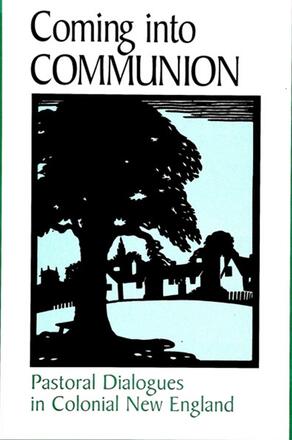
Coming into Communion
Pastoral Dialogues in Colonial New England
Alternative formats available from:
Explores the lives and religious imaginations of colonial women and the contributions they made to colonial religious discourse.
Description
By exploring the interrelationship between elite and popular religious culture in colonial New England, Coming Into Communion shows that laywomen made active significant contributions, through the process of dialogue, to religious language and theology in the early eighteenth century. Case studies examine a variety of women, including the poet Jane Colman Turell, Sarah Edwards (wife of the prominent theologian), and a group of women whose voices are preserved in history because they were accused of killing their newborn babies. Henigman tells the fascinating stories of their interchanges with their ministers to show that these women subtly revised the language of the clergy, choosing different scripture texts and images to describe a more intimate relationship with God and a holistic sense of community.
Laura Henigman earned her Ph. D. in English and Comparative Literature from Columbia University. Her teaching and writing focus on the religious and political discourses of early America.
Reviews
"Coming Into Communion tells a compelling story about significant early American texts and the people whose lives they represent. Each case study illuminates the subject in many ways, bringing fresh insights and perspectives to bear on familiar issues, while recovering voices that have not received as much attention or that had been covered by the voices of their interlocutors, in their own times and by the critical tradition. The book will cause scholars in many areas to reexamine critical assumptions. " — David H. Watters, University of New Hampshire
"This is a well-written, well-researched treatment of the dialogic relationship between women and their ministers in seventeenth- and eighteenth-century New England. The great strength of the book is its detailed readings of primary sources in a little-explored archive. We learn a great deal more than ever before about Jane Coleman Turrell and about the numerous 'criminal' women of the seventeenth century. " — Janice Knight, University of Chicago